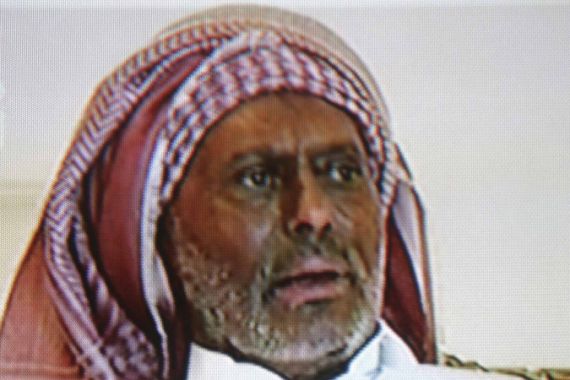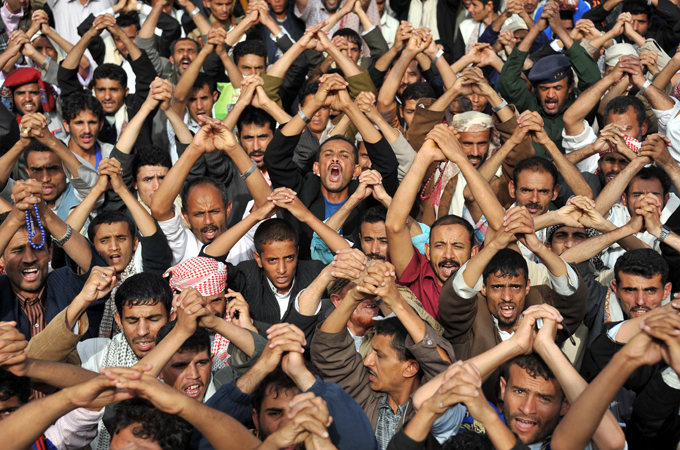Report claims Saleh ‘positive’ on GCC plan
Yemen’s injured leader reopens talks on a power-transfer plan and repeats his promises to return home.

 |
| Yemeni anti-government protesters have demanded President Ali Abdullah Saleh’s resignation since January [EPA] |
Ali Abdullah Saleh, Yemen’s president, has reportedly reconsidered a peace plan brokered by Gulf nations in a possible step towards breaking the country’s crippling political deadlock.
Saleh, recovering in Riyadh from bomb blast wounds, said his ruling General People’s Congress party stresses the need to “continue to deal positively with the Gulf initiative,” Yemen’s state news agency, Saba,
reported on Thursday.
“The GPC is committed to look for solutions for the dispute with the opposition,” Saleh said, stressing the need to “find a mechanism to implement (the proposal) in a way that would guarantee a peaceful and smooth transfer of power”.
The embattled veteran leader, whose regime has been facing protests since January, was speaking to members of his party who were visiting him at his residence in the Saudi capital, Riyadh, where he is convalescing.
The president who has been in office since 1978, and whose term ends in 2013, insisted that the implementation of the Gulf proposal should be done “in accordance with the constitution”.
Details of GCC deal
The deal proposed by the Gulf Cooperation Council (GCC) in April stipulated that Saleh would submit his resignation to parliament 30 days after passing power to his vice president. The opposition would then be tasked with forming a national unity government shared equally between the ruling party and the opposition.
Presidential elections would follow two months later.
Saleh has already agreed to the GCC plan three times, only to back out of it at the last minute.
The security situation in Yemen has worsened since protests demanding Saleh’s resignation, started in January. The transition plan brokered by the six-nation GCC has been moribund since he last avoided signing it in May.
The Riyadh meeting was attended by Yemen’s prime minister, who was also wounded in the bomb attack on Saleh’s compound, the head of a security agency and other senior loyalists, the official said.
Saleh renewed a promise to return home even though the US, which had long made Saleh a cornerstone of its counterterrorism policy, urged him not to. US diplomats relayed that message to Saleh in Riyadh, diplomatic sources said on Tuesday.
Yemen in turmoil
Meanwhile, the United Nations Security Council has called for “an inclusive, orderly and Yemeni-led process of political transition that meets the needs and aspirations of the Yemeni people for change”.
Jamal Benomar, the Yemen envoy of UN Secretary General Ban Ki-moon, was expected in Sanaa soon, the Yemeni official said following the meeting of Saleh’s close advisers.
As the crisis over Saleh’s fate has paralysed Yemen, longstanding conflicts with religious groups have flared up in the country’s south.
Armed fighters have seized parts of one southern province, with fighting forcing 90,000 inhabitants to flee.
Saleh’s last refusal to sign the GCC plan provoked weeks of fighting with a branch of the al Hashed tribal confederation which left parts of the capital Sanaa in ruins, and led to the assassination attempt.